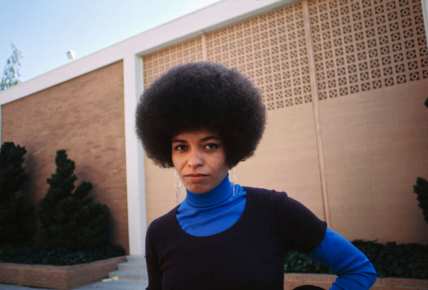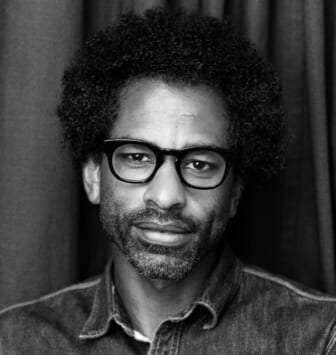How to get away with dealing drugs
OPINION: 'How to Make Money Selling Drugs' is an interesting documentary that won’t really set you up to make money selling drugs, but it will give you a broad vision of what’s going on in the drug world both on the street and governmental level.

Editor’s note: The following article is an op-ed, and the views expressed are the author’s own. Read more opinions on theGrio.
Watch “How to Make Money Selling Drugs” free on-demand on theGrio’s streaming app. Download it here.
If you’re interested in becoming a drug dealer, then the 2012 documentary How to Make Money Selling Drugs by Matthew Cooke may have a few valuable nuggets for you. It’s a fun primer on how to pull it off. The fast-moving doc gives us a wide-ranging look at all sorts of people and institutions that have profited from the sales of and prohibition on drug use. We hear about everything from low-level dealers to high-level kingpins to the police and the DEA. The doc seems to gamify the drug game as if each level is part of a video game and succeeding at one level allows you to move up. It mentions but doesn’t fully embrace the depth of the choices to enter this game—most dealers end up dead or in prison. But that’s not fun, so we plow ahead talking about how to make it, hearing from street legends, current cops, reformed cops, academics, journalists and legalization advocates.
They say it’s easy to start—getting your first piece of product is supposedly as easy as is getting customers. Many rappers have told me that it was easy for them as teens in N.Y. or L.A. or Detroit to acquire their first brick or bag of something, but if I wanted to get into drug sales, I wouldn’t know where to go. Would you? And even if you did get some stuff, after you start selling, someone who’s already selling in that area will come by and let you know you’re on their turf. The doc says the way around that is to just join a gang, but that’s not as easy or as painless as it sounds. It’s not a social club. It can be fun to make all of this seem fun and easy, but the people in the game are risking their lives—and usually losing—because they don’t see much hope for themselves, which is tragic. America paints them as monsters but they’re really people who’ve been left to die but found an underground industry that let them live—for a little while at least.
Some of the doc’s key takeaways for those who aspire to be successful drug dealers are 1) don’t do business at your home, 2) don’t put your money in the bank and 3) be white or, better, deal to white people. The doc contrasts stories of people who’ve dealt in the hood while carrying guns and got shot, stabbed, and/or raided with stories from a young white teen who dealt cocaine in Beverly Hills. He gleefully lets his whole private school class know that he’s got the drugs. He loves dealing. He says, “I always wanted to be loved and accepted and that’s what coke gave me…It was addictive to be a drug dealer. The way people talked about you, the way people looked at you, the power I felt from it…” Many dealers have told me that dealing becomes addictive because of the money, the power, the rush, the ego boost, and the sense of outsmarting the world. That kid, by the way, ends up getting expelled from school—for using drugs, not for selling.
The doc also counsels dealers to transport drugs in a cheap-looking car preferably one driven by a woman. Don’t put the stuff in the trunk. You’ve gotta have someone build a sophisticated safe within the car that can’t be easily accessed. But if the cops stop you, they’ll tear the car apart and will usually find the safe anyway. Law enforcement is one of the dealer’s biggest problems—the doc doesn’t deal much with the problem of tangling with other dealers—but you can deal with that but hiring an ex-DEA agent to work on your team. Indeed, if you get big enough, you can have your own army to help you deal with anyone who might get in your way. In Mexico, they say, if your army is big enough, they’ll just march into a local prison and pull out all of your guys, and no one will stop them because they’re probably more numerous and better armed than the jailers and most of the law enforcement in that country is either on the take or scared to death of the kingpins or both. Someone says if you’re a cop, when a kingpin mails you a photo of your family at home, you’ll resign or get in line really quickly.
The American government is not corrupted by drug kingpins but it is equally corrupt in that the war on drugs is our way of profiting from the drug trade. It’s a complete failure—drugs are just as plentiful and as easy to get as they were decades ago. I mean, if you’re into using drugs, how often do you have dealers saying to you, oh, I have no product? Almost never. In America, a small bag of illegal marijuana and cocaine are as easy to procure as milk and eggs.
The war on drugs has accomplished nothing in terms of stopping drugs but it has made billions for the U.S. government. One particularly corrupt aspect of law enforcement’s relationship to drugs that the doc explores is the world of snitching. When small-level dealers are arrested, law enforcement squeezes them to expose other people who are higher ranking in the drug hierarchy. But these deals between police and snitches are never overseen by lawyers or courts, and it’s in the informant’s best interest to snitch on people who aren’t dealers because if you tell on someone who is in the game, there will be a violent reprisal and you’ll be excommunicated from the underground drug world.
Many innocent people have been arrested and convicted of using or selling drugs in part because the police are incentivized to make as many arrests as possible and make them as fast as possible. The police also quite often break the law in the course of making those arrests. But no one cares if it’s in the name of supposedly getting drugs off of the streets. So we have a drug world where most people will eventually get arrested, and they’ll probably tell on someone who is innocent because that’s safer for them, and the police will arrest them because that’s advantageous for them. And drug users can still get affordable drugs whenever they want. When do we get to the part about making America safer?

The making of a revolutionary
How to Make Money Selling Drugs is an interesting doc that won’t really set you up to make money selling drugs, but it will give you a broad vision of what’s going on in the drug world both on the street level and the governmental level. After you watch this, you’ll feel like you have an understanding of how drugs get here, how they’re distributed and how the government lies to citizens about fighting to help keep us from doing drugs. In a world where more and more states are legalizing drug use, it’s increasingly bizarre to also have a war on drugs that attacks drug users and sellers. But as a wise man once said, when you enter the world of illegal drugs, you go through the looking glass.

Touré hosts the podcast “Touré Show” and the podcast docuseries “Who Was Prince?” He is also the author of seven books.
TheGrio is FREE on your TV via Apple TV, Amazon Fire, Roku, and Android TV. Please download theGrio mobile apps today!

